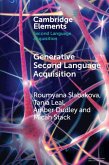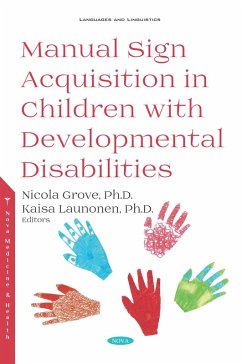Investigating the psychological dimensions of second language acquisition is essential for advancing language education, promoting multilingualism, and fostering intercultural understanding in our diverse and interconnected global world. This comprehensive volume of theoretical and empirical studies provides a variety of perspectives on the intricate interplay between psychology and second language acquisition that can significantly influence the processes of second language learning and teaching. The book discusses diverse factors such as age, motivation, anxiety, learning styles, and learning strategies, underlying the direction and extent of second language learners' behaviours; focuses on the role of working memory in cognitive linguistics, with a specific focus on vocabulary acquisition and the long-term retention of linguistic expressions; draws on sociocultural theory; presents a communication model that encourages diverse educational relationships based on a highly interactive classroom experience; examines the impact of audiovisual education and vlogging on second language acquisition; and examines the application of second language acquisition theories for teaching methods and English learning materials development. The book is an invaluable resource for scholars and practitioners who are attempting to understand the underlying mechanisms that shape the journey of acquiring a second language.
Dieser Download kann aus rechtlichen Gründen nur mit Rechnungsadresse in A, B, BG, CY, CZ, D, DK, EW, E, FIN, F, GR, HR, H, IRL, I, LT, L, LR, M, NL, PL, P, R, S, SLO, SK ausgeliefert werden.









